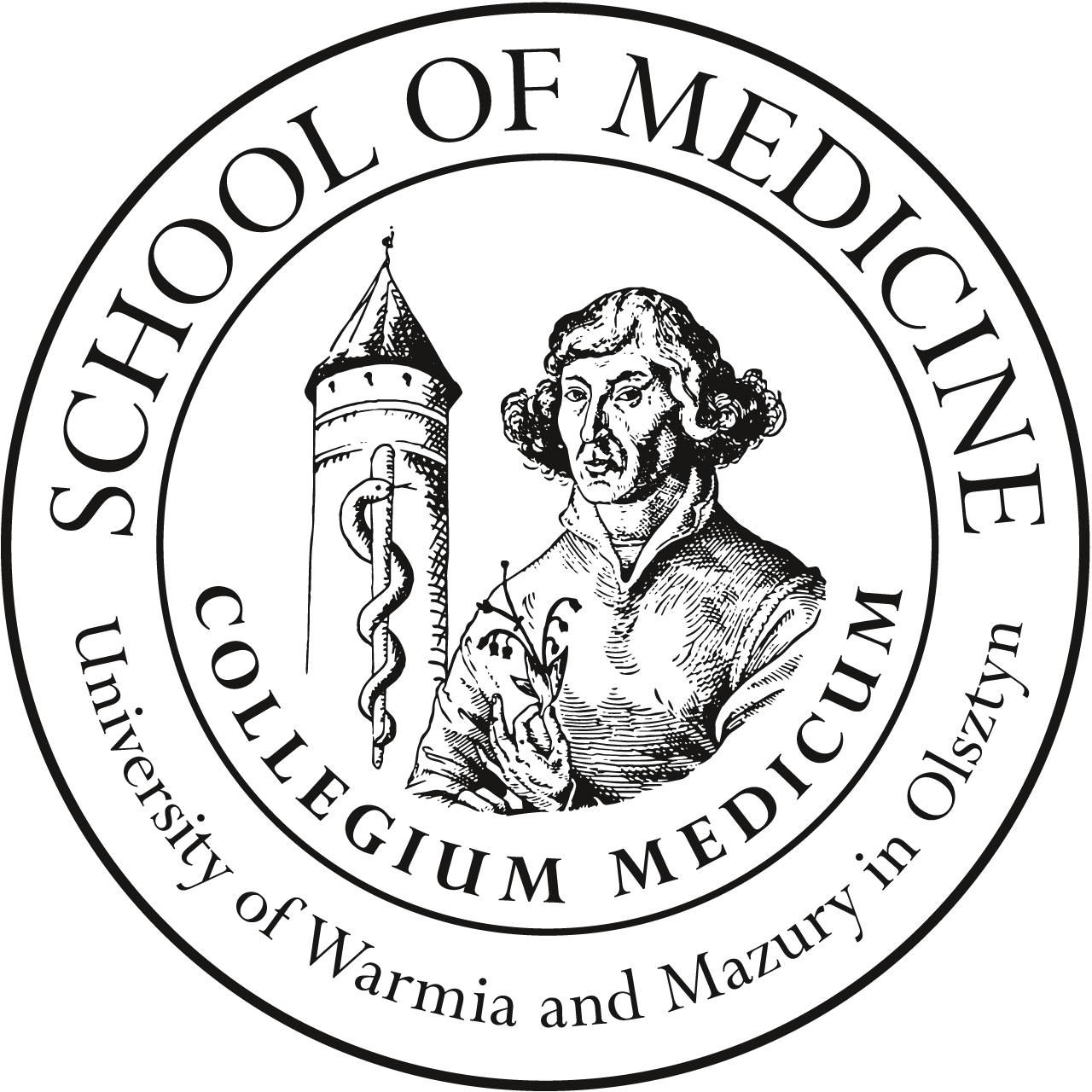CLASS TOPICS
PEDIATRICS
Winter semester 2018/2019
IV Year
[HEMATOLOGY/ DIABETOLOGY]
Lecture 10 h
- Anemia in children: symptoms, differentiation, diagnosis.
- Disorders of hemostasis: primary (vascular defects, von Willebrand, thrombocytopenia, platelet dysfunction).
- Disorders of secondary hemostasis in children norms of hemostasis in children, indications for treatment.
- Leukemia in children. Methods of diagnosis and therapy.
- Tumors of lymphatic systems in children.
Seminars 10h
- Differences in laboratory standards of CBC in childhood.
- Diagnosis and differentiation of enlarged lymph nodes in children.
- Immune disorders in children.
- Iron deficiency anemia. Haemolytic anemia. Aplastic anemia.
- Neutropenia.
- Poisoning in children.
- Rare diseases
- Diabetology
ATTENTION: The sequence of topics may change during the semester according to the schedule for Pediatrics. Due to the wide range of material, we recommend earlier preparation.
A test, which covers the subject from obligatory textbooks, seminars and lectures, will be taken before every practical class.
Classes will be held in the Regional Specialist Children’s Hospital in Olsztyn
HEMATOLOGY – Clinical Department of Pediatric Oncology and Hematology
What should the student know before entering the classes?
Basic knowledge of anatomy, physiology and pathology of lymphatic system, hematopoiesis, hemostasis.
Topic 1: Anemia. Iron deficiency anemia, foliate deficiency anemia, pernicious anemia, anemia of the chronic diseases
Age – specific normative red blood cell values, regulation of haemopoiesis – there should be a balance between cell production and cell death except at times of requirement, risk factors for anemia – causes of iron deficiency, folate deficiency Vit B – 12 deficiency in children.
Epidemiology of iron deficiency anemia, approach to the patient with suspected anemia, physical examination, clinical examination, diagnostic tests, the doctor’s orders: methods of treatment and prevention of iron deficiency anemia, dietary recommendation.
Participation in medical rounds.
Discussion of interesting cases of children hospitalized in the ward.
Examination of children, history – taking.
Participation in the specialist consultations. Participation in the work of a specialist clinic. [Essentials of Pediatrics 6th Edition p. 555 – 573 and Illustrated Textbook of Pediatrics p. 381 – 403].
Topic 2: Hemolytic anemia (congenital, acquired)
Pathophysiology of the signs and symptoms, hereditary hemolytic anemias: sickle cell anemia, thalassemia, glucose-6-phosphate dehydrogenase deficiency. Acquired hemolytic anemias as a result of immune system disorders, drugs or environmental effects. Epidemiology of hereditary hemolytic anemias.
Participation in medical rounds.
Discussion of interesting cases of hospitalized children.
Examination of children, history taking.
Participation in specialist consultations.
[Essentials of Pediatrics 6th Edition pages 555 – 573 and Illustrated Textbook of Pediatrics pages 381].
Topic 3: Aplastic anemia (congenital, acquired)
Definition and the scale of the problem, clinical presentation, the pathophysiology of the aplastic anemia, investigations required for the diagnosis of the aplastic anemia, definition of the disease severity based on the CBC and bone marrow findings, differential diagnosis of pancytopenia and a hypocellular bone marrow, pure red cell aplasia, options for treatment: standard treatment, supportive care (transfusional support, haemopoietic growth factors, prevention of infection, treatment of infection, BMT. Iron overload, iron chelation therapy
Participation in medical rounds.
Discussion of interesting cases of hospitalized children.
Examination of children, collecting history.
Participation in specialist consultations. Participation in the work of a specialist clinic.
Topic 4: Hemostasis disorders in children
Contents of classes: laboratory tests and norms of hemostasis in children, indications for treatment, primary hemostatic disorders: vascular anomalies, Von Willebrand disease, thrombocytopenia, platelet function disorders. Medical history and physical examination, laboratory evaluation, treatment and prevention.
Participation in medical rounds.
Discussion of interesting cases of hospitalized children.
Examination of the children, history – taking.
Participation in specialist consultations. Participation in the work of a specialist clinic.
[Essentials of Pediatrics 6th Edition pages 555 – 573 and Illustrated Textbook of Pediatrics pages 381].
Topic 5: Leukemia. Lymphomas
Epidemiology, morbidity and mortality in children, risk factors. Symptomatology, clinical examination, modern methods of treatment, diagnostic standards (myelogram). Clinical cases of children with leukemia and lymphoma.
Participation in medical rounds.
Discussion of interesting cases of hospitalized children.
Participation in the specialist consultations.
[Essentials of Pediatrics 6th Edition pages 555 – 573 and Illustrated Textbook of Pediatrics pages 365 – 381].
DIABETOLOGY – Department of Pediatric Rheumatology and Endocrinology. Pediatric Ward VI
What should the student know before entering the classes?
Basic knowledge of anatomy, physiology and pathology of the endocrine part of the pancreas. Disorders of carbohydrate, protein and lipid metabolism, fluid and electrolyte balance. Effects of insulin and glucagon.
Topic 1: Diabetes mellitus type 1
Definition, epidemiology, pathogenesis, environmental factors, clinical manifestation of diabetes, natural history, diagnosis, differential diagnosis, prognosis.
Participation in medical rounds.
Discussion of interesting cases.
Participation in the training of the patients and their parents with diabetes.
Participation in specialist consultations.
Participation in the work of the Specialist Clinic.
Topic 2: Treatment of diabetes mellitus
Aims of the treatment, methods of insulin therapy, types of insulin and characteristics, complications of insulin therapy, therapeutic education, diet, psychotherapy, alternative methods
Diabetic coma – definitione, diagnosis, epidemiology, treatment, differential diagnosis, complications, prognosis.
Diabetes mellitus type 2 – definitione, diagnosis, epidemiology, pathogenesis, treatment, differential diagnosis, complications, prognosis.
Participation in medical rounds.
Discussion of interesting cases.
Participation in the training of patients and their parents with diabetes.
Participation in specialist consultations.
Participation in the work of the Specialist Clinic.


